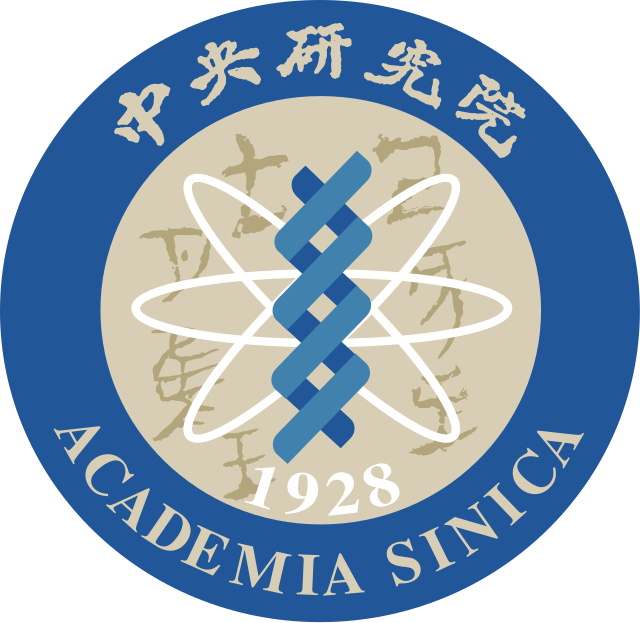EDUCATION AND POSITIONS HELD:
- B.S., Chemical Engineering, National Taiwan University, Taipei, Taiwan
- Ph.D., Chemical Engineering, Stanford University, CA, 1998
- Senior Engineer: Department of Advanced Technology, MMC (Maxtor Corp.), San Jose, CA, USA, 1998
- Postdoctoral Scientist, Stanford University, CA/ Affymetrix Corp, Santa Clara, CA, USA, 1998-1999
- Assistant Professor, Department of Chemical Engineering and Materials Science, and Department of Biomedical Engineering, University of California, Irvine, USA, 1999-2003
- Associate Professor, Genomics Research Center, Academia Sinica, Taipei, Taiwan, 2004-2007
- Professor, Genomics Research Center, Academia Sinica, Taipei, Taiwan, 2010-present
- Consulting Professor, Department of Chemical Engineering, Stanford University, 2014-present
RESEARCH INTERESTS:
Biomimetic Smart Materials and Interfaces
My research focus first aims at the protocol design for the construction of a supramolecular architecture consisting of biomolecules or biomimetic materials.
One of the greatest challenges will be the development of the capability to control the molecular organization from its natural form when interacting with artificial interfaces, thus possibly leading to useful applications that require the incorporation of non-biologically originated materials. The ultimate goal is to establish engineering methodology to fabricate both bio- and non-biological materials with novel functionality inspired by the nature.
For instance, it is known that various biological functions ranging from catalyzing, transporting, to storing energy, etc, arise from the conformational transition of proteins (polypeptides) molecules. Thus, studying the conformational transition of both natural or artificial polypeptide materials might lead to the creation of a novel category of “smart materials” which can be extremely sensitive to the external stimulants from ionic strength, pH, chemicals, lights, heats, and electro-magnetic fields. In our laboratory, we will identify the key factors to establish the protocols, through a series of molecular design, synthesis, functional and structural characterization.
Likewise, various novel supramolecular structures or nanocomposites formed by macromolecules, small chemicals, or nanoparticles, can be readily assembled based on the same design principles.
Rare Cell Isolation, Purification and Maintenance by Smart Surfaces and Microfluidics
We designed and synthesized materials to systematically study the cell-materials interactions which are critical to tissue engineering and fundamental understanding of biological phenomena. By creating new architectures of materials assemblies, we wish to uncover novel properties, which in turn provide unique applications. In the biological applications, we have demonstrated the applicability of these non-biological originated interfaces on controlling cell fate. In particular, we have especially focused on the co-culture systems such as circulating tumor cells in blood, and stem cells in primary cells. These rare cells are important, however, are extremely rare and hard to control. With our available tools, in one case, we are able to demonstrate that the nanostructures of collagen I fibrils are important to control stroma cells, which in turn regulate the self-renewal property of pulmonary stem/ progenitor cells. While there is no stroma cells, the nanostructures of collagen I fibrils become less relevant to the stem cell fate (Huang et al, Biomaterials 2010). In another case, we are able to purify and control fetal liver stem cells in forming suspended spheres, semi-suspended spheres; using the same materials in the presence of lipid bilayers, the maintenance period of stem cells can be doubled. By incorporating the micro-fabricated device, which provide external force fields (mechanically, electrically, and chemically) with both spatial and temporal resolution, we will be able to take one step further in controlling these co-cultured systems in high precision even more efficiently. We will focus on mediating materials-cell interactions to efficiently select, purify, and maintain rare cells such as stem cells in primary culture and circulating tumor cells in blood.
Link: 中央研究院 基因體研究中心 (sinica.edu.tw)
The internship will be to join with the company Acrocyte Therapeutics
Link: www.acrocyte.com
Biomaterials, Liquid Biopsys, Precision Medicine, Circulating tumor cells, Regenerative medicine, Organoids
We are seeking for summer interns who have the background in AI, bioinformatics, statistics, data science and are interested in developing cutting edge applications in the field of precision medicine. The participants will have the opportunity to interface with engineers, biologists and medical practitioners and learn about entrpreneurship.
- B.S., Chemical Engineering, National Taiwan University, Taipei, Taiwan
- Ph.D., Chemical Engineering, Stanford University
